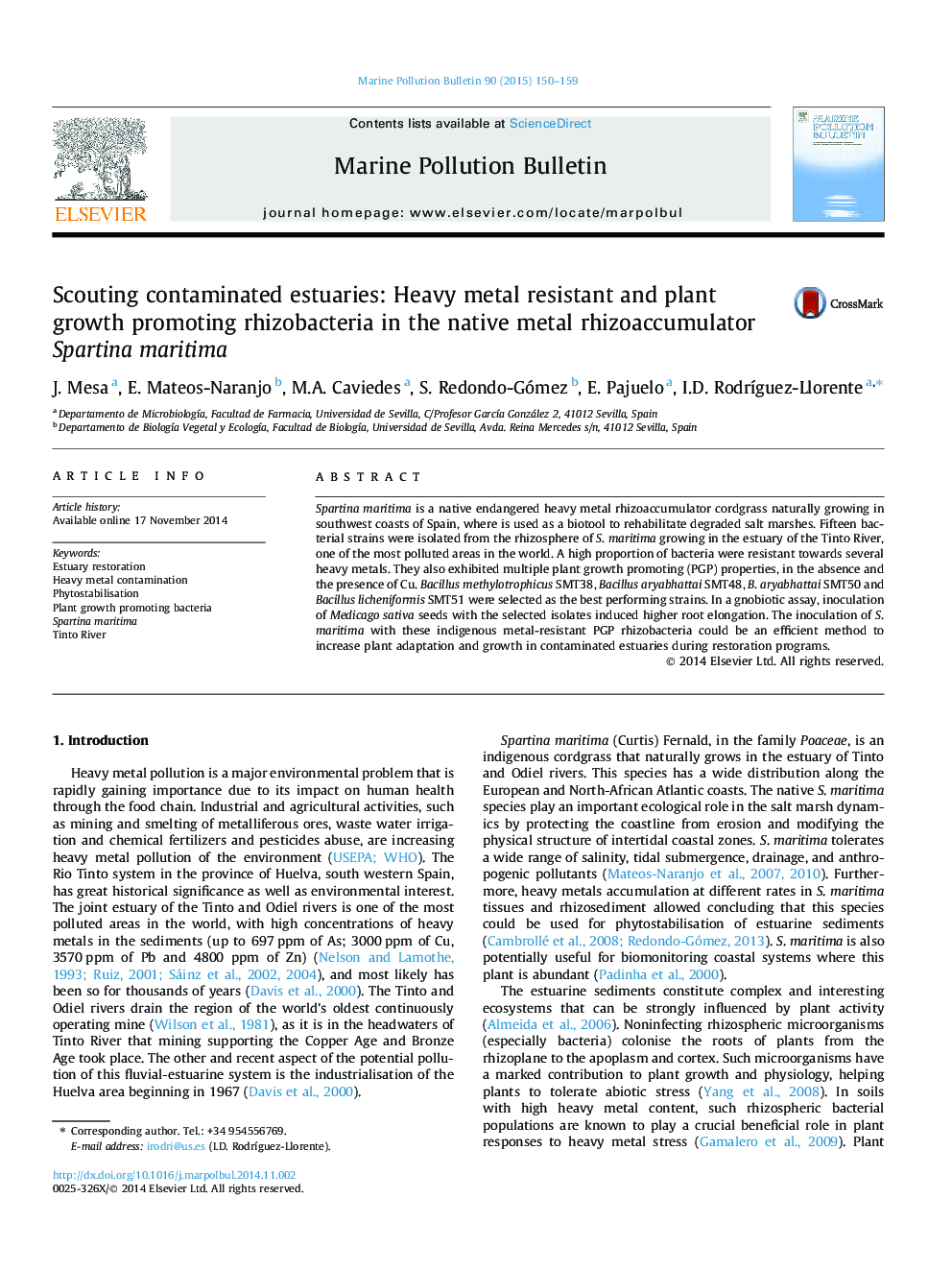| Article ID | Journal | Published Year | Pages | File Type |
|---|---|---|---|---|
| 6357204 | Marine Pollution Bulletin | 2015 | 10 Pages |
â¢S. maritima rhizosphere bacteria from the polluted Tinto River estuary is analysed.â¢PGP properties are studied in the absence and the presence of copper.â¢Four strains with salt and heavy metal resistance and PGP properties are selected.â¢The selected strains are tested in M. sativa seedlings, enhancing root elongation.â¢The inoculation of S. maritima may be determinant for restoration programs.
Spartina maritima is a native endangered heavy metal rhizoaccumulator cordgrass naturally growing in southwest coasts of Spain, where is used as a biotool to rehabilitate degraded salt marshes. Fifteen bacterial strains were isolated from the rhizosphere of S. maritima growing in the estuary of the Tinto River, one of the most polluted areas in the world. A high proportion of bacteria were resistant towards several heavy metals. They also exhibited multiple plant growth promoting (PGP) properties, in the absence and the presence of Cu. Bacillus methylotrophicus SMT38, Bacillus aryabhattai SMT48, B. aryabhattai SMT50 and Bacillus licheniformis SMT51 were selected as the best performing strains. In a gnobiotic assay, inoculation of Medicago sativa seeds with the selected isolates induced higher root elongation. The inoculation of S. maritima with these indigenous metal-resistant PGP rhizobacteria could be an efficient method to increase plant adaptation and growth in contaminated estuaries during restoration programs.
Graphical abstractDownload full-size image
